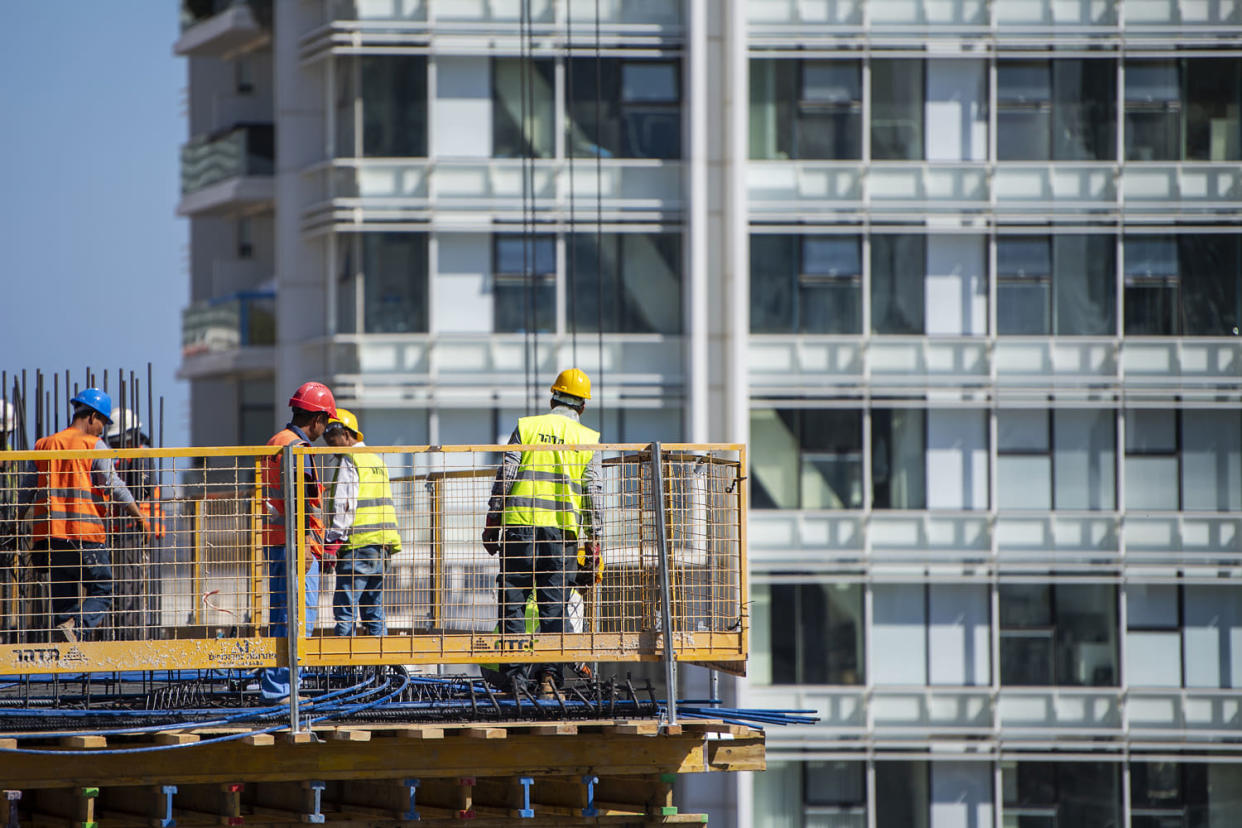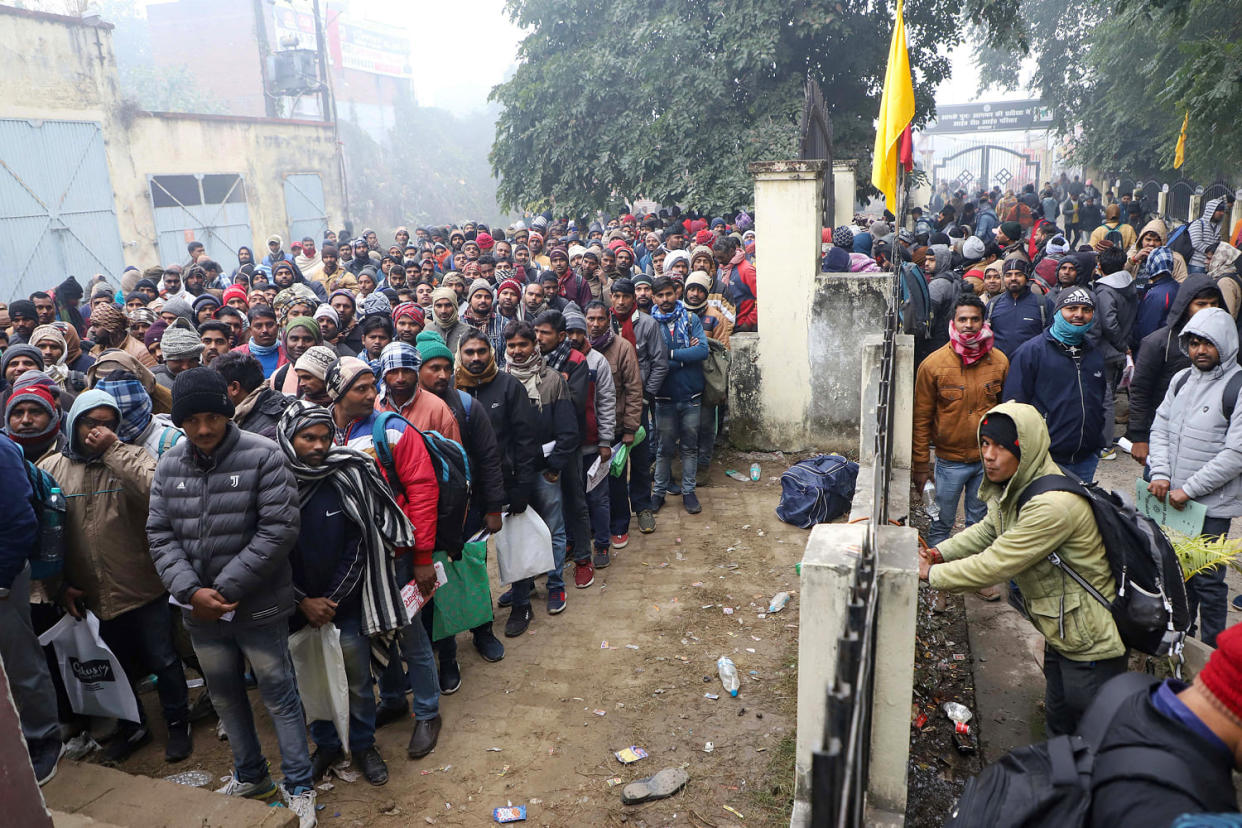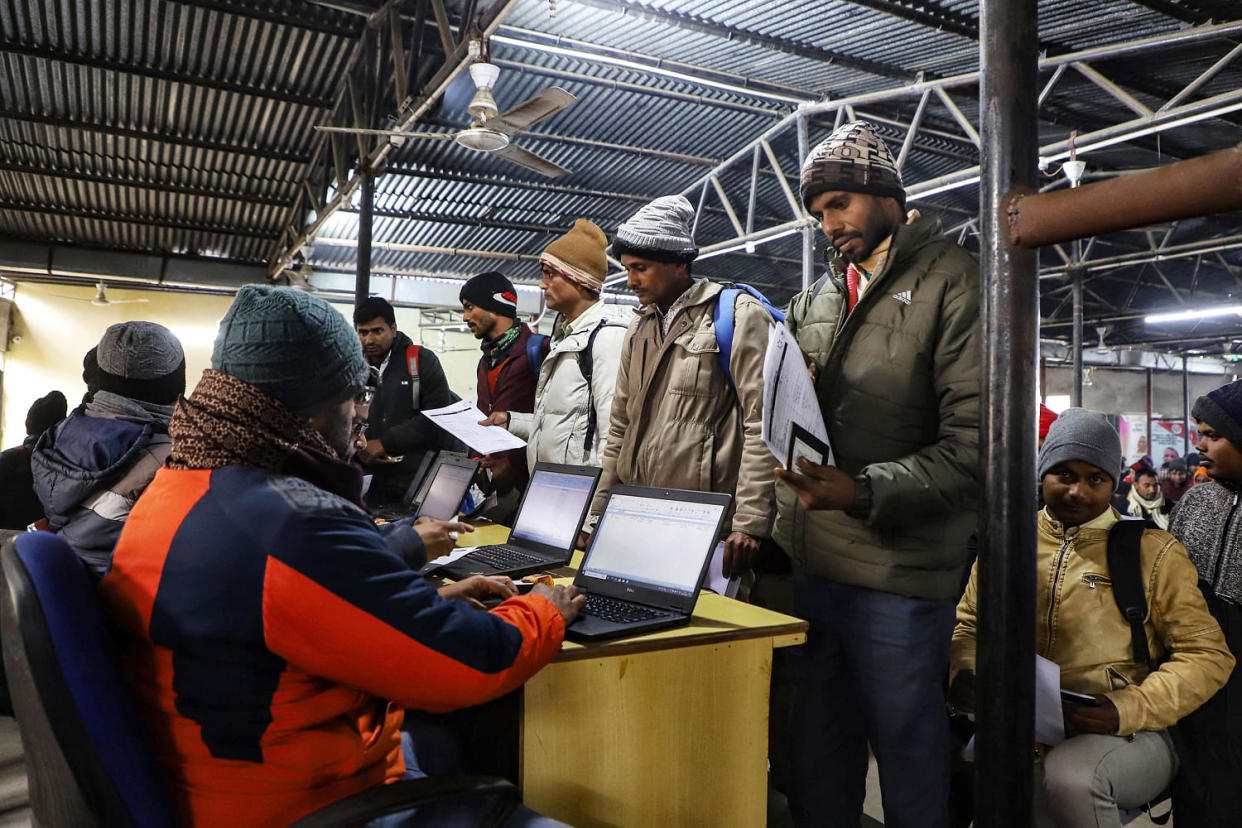Facing dire labor shortage, Israel recruits migrant workers from India
In villages and towns across India, Israel is recruiting — not for its war in Gaza, but for its own economy.
Tens of thousands of workers are filling job centers across the country, spotting opportunity in the acute labor shortage created by Israel’s war with Hamas. But Indian trade unions have called on the government to terminate the labor agreement, arguing that it supports Israeli military actions in the Gaza Strip critics say amount to genocide, allegations that Israel strongly denies.
Applicants are drawn by the chance to earn far higher wages than they could at home, even if it means working in a war zone.
For Srinivas Kundan, it’s a chance for his teenage sons to receive the college education he never could. The construction jobs he’s applying for pay almost $20,000 annually, including accommodation, more than six times the average annual wage in India and double what Kundan said he earned in Abu Dhabi, where he worked for six years as a security guard.
“The salary is really good, so I am trying,” Kundan, 38, said in a phone interview from the southern Indian state of Telangana.
Israel, a country of about 9 million people, relies heavily on foreign labor in sectors such as agriculture, construction and caregiving. That need has become even more urgent amid the Israel-Hamas war, which has killed almost 27,000 people in Gaza and about 1,200 people in Israel since Oct. 7.

Palestinians from both Gaza and the West Bank are now mostly barred from entering Israel, their work permits revoked on security grounds. Thousands of migrant workers from Asian countries such as Thailand, Nepal and the Philippines have opted to return home after seeing their fellow countrymen killed. Israeli reservists, meanwhile, have been called to war, further cutting into the supply of workers.
The labor shortage has dealt an especially big blow to Israel’s construction industry. Before the war, two-thirds of the more than 150,000 Palestinians working in Israel were in construction, according to the Palestinian Central Bureau of Statistics.
The shortage of construction labor is so acute, officials say almost half of Israel’s building sites are now closed.
“The construction business is based on Palestinians. About a third of our workers were Palestinians before the war,” Shay Pauzner, deputy director-general of the Israel Builders Association, said in a phone interview.
The overall labor shortage is estimated to be costing the Israeli economy more than $800 million a month, according to the finance ministry, leading Israel to turn to countries such as India and Sri Lanka for new workers.
Recruitment talks with India, which has grown closer to Israel under Prime Minister Narendra Modi, were already underway well before the war began. India, the world’s most populous country, struggles to provide jobs for its 1.4 billion people, and although the overall unemployment rate has been falling, the jobless rate for people ages 15 to 24 was 17.9% in 2022, according to the World Bank.
There are currently 18,000 Indians working in Israel, mostly as caregivers, according to the Indian foreign ministry.
“Salary and longevity of contract is the main motivator. It’s a quantum leap and a killer combo to attract workers of any kind,” Samir Khosla, chairman of Dynamic Staffing Services, an agency based in New Delhi that works with Pauzner’s group, said in a phone interview Tuesday.
The recruitment drive has its critics, some of whom fear the Indian workers might be deployed in high-risk areas or be subject to mistreatment. Thai migrant farmworkers interviewed by Human Rights Watch have described being underpaid, working excessively long hours and other rights violations.
“Nothing could be more immoral and disastrous for India than the said ‘export’ of workers to Israel,” a group of 10 of India’s biggest trade unions said in a November statement. “That India is even considering ‘exporting’ workers shows the manner in which it has dehumanized and commodified Indian workers.”

Indian officials have defended the recruitment, saying labor laws in Israel are “robust.”
“We are very conscious of our responsibility to provide security and safety to our people who are abroad,” Indian foreign ministry spokesperson Randhir Jaiswal told reporters this month.
The risks of war and any ethical considerations have not been enough to deter Indian workers such as Kundan from applying.
“I don’t care,” he said. “It’s possible we could get injured. But we need to make our lives better, too.”
The Israeli government is hiring 10,000 construction workers in the first phase, Pauzner said, including carpenters, ironworkers, plasterers and tile fitters, and up to a total of 60,000 in the coming months. He said 6,000 workers had already been selected, some of whom will be arriving in Israel as early as mid-February.
Going forward, India is likely to become Israel’s biggest source of foreign construction workers, he said.
Officials have set up recruitment centers in multiple Indian cities including Delhi and Chennai. Applicants in the highly competitive process must have at least three years of experience and pass an exam.

A handful of online job postings seen by NBC News, some of which have had thousands of views on YouTube, list another eligibility requirement: Only non-Muslims need apply.
Pauzner and Khosla said neither the Israeli government nor the builders association has imposed any kind of religious restriction on applicants. Pauzner added that workers are also being recruited from Uzbekistan, a Muslim-majority nation in Central Asia.
That message may not be trickling down to all those involved in the process in Hindu-majority India, where about 14% of the population is Muslim. Independent recruiters in two different cities told NBC News they had been told by the bigger hiring firms they work for that only Hindus and Christians would be considered.
Niaz Ahmed Farooqui, secretary of Jamiat Ulama-i-Hind, a leading Muslim group in India, said Wednesday that the group was not aware of any religious discrimination in the recruitment process. The Israeli Embassy in New Delhi and India’s foreign ministry did not respond to requests for comment.
In December, Raul Srugo, president of the Israel Builders Association, told Israeli lawmakers, “As far as we care, they can bring us workers from the moon.”
CORRECTION (Feb. 4, 2024, 5:15 p.m. ET): A photo caption on a previous version of this article misstated when Indian workers were pictured applying for work. It was Jan. 25, not Feb. 1.
